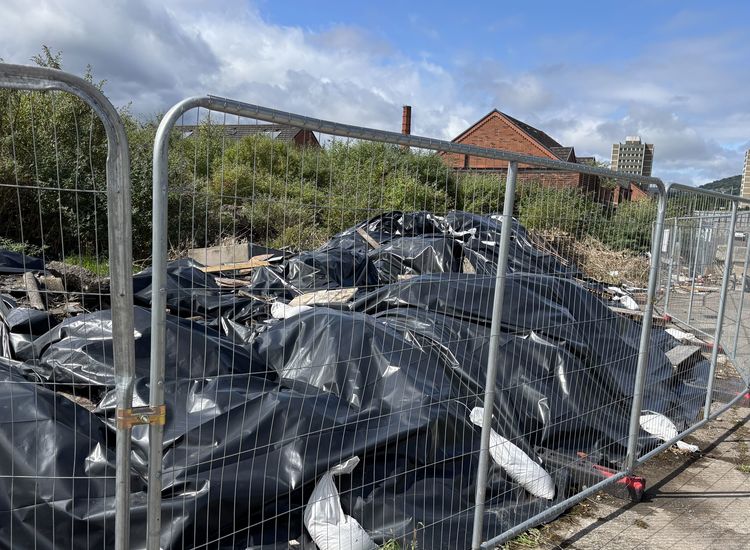Australia has long been a cornerstone of the Irish diaspora
By Billy Cantwell
The Irish government is working on a new policy for the diaspora as the country seeks to expand and improve its global footprint and influence by 2025.
The Varadkar government is looking for ideas from the global Irish family to inform this new policy.
However, as a recent visit to Australia by the relevant minister Ciaran Cannon revealed, the government has yet to settle on a definition for the Irish diaspora.
If you’re a fifth generation Aussie of Irish heritage, you have a very different existential relationship with Ireland than the 28-year-old nurse from Mayo who arrived into Sydney airport this morning.
For the purposes of this exercise, it is crucial that the nurse, let’s call her Aoife, is foremost in our thoughts and informs what we can observe about the recent experience of emigrants.
Why? Firstly, because she is an Irish citizen living and working abroad, hopefully by choice. In her head and her heart she will always be Irish, no matter where she lives.
Irish emigrants have a very different relationship with Ireland than those of more distant Irish heritage.
For the fifth generation Aussie, let’s call him Kevin, Ireland holds an abstract place in his cultural memory. But it will never be home.
The good news for Aoife is that all the evidence points to the fact that she will do very well here.
She will get a job almost immediately. When she goes to work, she will meet others just like her. Irish nurses, many of whom, sadly, believe that Ireland does not sufficiently value their skills to pay them, or offer them the working conditions, that they deserve.
That issue aside, Aoife will most likely get sponsored and begin a pathway to permanent residency in Australia, still something that is highly desired among young Irish immigrants.
She may join one of the Gaelic football or camogie clubs or try her hand at Aussie Rules which seems to be such a great fit for young Irish women. Either way, there will be no major cultural or ethnic obstacle to her integration into Australian life.
Coming to Australia from Ireland is such a well-trodden path now that people like Aoife slip almost immediately into the mainstream.
Aoife will become part of a migrant community which, the census tells us, is one of the most successful in Australia.
When individual earnings are compared by place of birth, the Irish appear right at the top of the list. We earn more than any other European migrants.
So Aoife has nothing to worry about then?
Well, not exactly.
Returning emigrants, particularly those returning from beyond the European Union, often recount negative experiences when trying to reintegrate into Irish life.
What if Aoife, like many of those who came before her, becomes inconsolably homesick? What if her elderly grandmother becomes seriously ill? Does she jump on a plane? It’s such a long way. What if she herself has an accident? A car crash? An unplanned pregnancy? What if she overstays her visa?
The Irish in Australia confront similar challenges to other Irish emigrants, whether they be in Boston, Birmingham or Berlin. But the tyranny of distance, in my view, compounds the negative implications and makes our situation almost unique. Our remoteness also makes it more difficult for us to agitate for recognition, support and funding from Dublin.
I think there is an excellent case to be made for additional Irish government resources to be deployed here. For example, we have seen the clear benefits of having a consulate in Sydney and an honorary consulate in Perth. Both entities have enriched the experience of Irish emigrants in those cities, not to mention the broader benefit of promoting Irish interests – a key goal of Taoiseach Leo Varadkar's Global Ireland 2025 strategy.
Melbourne and Brisbane, cities with very significant emigrant populations, not to mention their own cultural and historical links with Ireland as well as economic and commercial opportunities for Ireland, are still waiting for their consulates.
If people think this is asking too much, just look at Canada, a comparable nation, which has five honorary consuls to Australia’s one.
Similarly, Australia, despite being the number one destination for young Irish over the past 15 years, receives only a tiny proportion of the Emigrant Support Programme (ESP) budget, less than four per cent. More than 92 percent of ESP funding in 2017 went to Britain, the U.S. and Ireland itself. In per capita terms, emigrants in Australia receive less than one fifth of what their U.S. equivalents get.
Ireland needs a policy that deals exclusively with emigration, emigrants and Irish-born citizens abroad.
In terms of recognition, of the hundred Presidential Distinguished Service Medals which have been handed out to members of the diaspora by successive Irish presidents, only three have come to Australia.
Those issues aside, let me say that Irish emigrants to Australia do not, in my view, face unique obstacles beyond those which are confronted by any other immigrant to this country. The constantly shifting goalposts of the Australian immigration department may be infuriatingly complex, bureaucratic and expensive, but that is not something which can be influenced from Dublin. Ireland can’t solve all of our problems.
But I think we would all welcome more open-ended government to government conversations about extending reciprocal privileges for Irish people here and Australian people there. Older migrants, for instance, may want to spend their later years in Ireland, or expat families may want to bring their elderly relatives to live here. These choices need to be supported.
Similarly, it is now very difficult for the partners of Irish citizens to secure post-nuptial citizenship in Ireland. The rules surrounding this were changed only in the last twenty years and should, in my view, be revisited.
It has to be said that many of the most negative experiences that citizens abroad have confronted in recent years have come when they have returned to Ireland.
The negative response in elements of the Ireland-based media to the forthcoming referendum on voting rights for the Irish abroad in presidential elections mirrors the experience of many returning emigrants when they confront the dreaded Habitual Residency Condition when trying to reconnect to Irish life.
It seems to be particularly difficult for returning citizens who have been outside of the EU to complete simple tasks like enrolling their kids into school, applying for a home loan, getting a drivers licence, or securing car insurance.
Similarly, the fact that young Irish citizens seeking to study at Irish universities are deemed to be foreign students is a problem that demands an imaginative response.
Just this week I received an email from a young Irish couple who in 2016, after five years in Australia, decided to make the big move back home.
Three months ago, they moved back to Australia.
The young mum said: “It really didn’t work out for us. They go on about how they want us back but they make things hard.”
So, in summary, Ireland does not need one new policy for the diaspora. It needs two.
One, a policy that deals exclusively with emigration, emigrants and Irish-born citizens abroad. It is written with someone like Aoife in mind.
The experience of emigration (or even living and working abroad) sets people like Aoife apart from the broader diaspora. The goal of the policy should be ensure that Aoife has consular support nearby; that there is a well-funded safety net she can fall into and that should she decide to return home, she can do that seamlessly and with minimum fuss. She should be able to vote in all Irish elections for up to five years and her future husband, wife or life-partner, should also be able to get Irish citizenship, just like her children will. Extending the voting franchise will also allow other emigrant issues to be given the political currency they deserve.
The second policy should be all about the children of Irish emigrants and their descendants. The goal should be to ensure that their cultural affinity is enhanced and their Hibernian heritage is celebrated, but in a practical way that does not seek to patronise or shake
This can be achieved through increased investment in cultural programmes which support the globalisation of Irish culture.
The French, through Alliance Française, and the British, through the British Council, have created successful models for just such activity.
Irish music, dance, language and literature should provide more than enough content for real engagement for an Irish equivalent.
Ireland’s universities should be compelled (and funded) to participate.
Done right, the policy will reinforce Ireland privileged position as a renowned centre of cultural creativity and deliver flow-on benefits for business, tourism and the economy.
If you build it, they will come.
Billy Cantwell is the founding publisher of the Australian Irish Echo based in Sydney.









